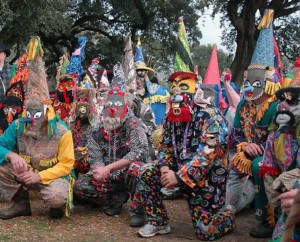
The writer is a Cajun member of the Party for Socialism and Liberation
Le Grand Dérangement, or Great Upheaval, is the historical event that created and defined the Cajun community. It is woven into our lives, our flag, our language, even the stories we tell our children.
Le Grand Dérangement wasn’t an isolated event and the creation story of the Cajun people begins, oddly enough, with the War of Spanish Succession (1701-1714) and The Treaty of Utrecht (1713) which awarded L’Acadie, the present day Maritime Provinces of Canada, to the British. The Acadian people resisted British oppression from the beginning, refusing to take the Oath of Allegiance and forming an alliance with the Wabanaki Confederacy, a group of five First Nations in the Acadian region, to engage in guerrilla resistance to British colonialism.
The Great Upheaval didn’t begin, however, until the French and Indian War (1754-1763). Reigniting the French-British rivalry for control in North America brought the already active resistance to British rule in L’Acadie to outright war. The guerrilla forces of the Acadian-Wabanaki alliance were overpowered by the British Army, thus beginning Le Grand Dérangement. The Acadians were deemed ungovernable and expelled by the British to their colonies to the South (the future U.S.) or to Britain proper or back to France.
The Acadians who were sent to the Thirteen Colonies suffered horrendous fates. Thousands died as their ships, modified cargo vessels, sat in harbors or were lost at sea or died in concentration camps in L’Acadie, England, and the Thirteen Colonies. In the Carolinas, where the most rebellious Acadians were sent, 1,400 refugees were put to work on plantations.
The Treaty of Paris (1763) ended the Seven Years’ War and awarded the Louisiana Territory to Spain with several conditions, including that the Spanish authorities grant asylum to Acadian refugees. The diaspora made their way to the new lands and established L’Acadiane. The Cajun community was allowed great autonomy by the Spanish colonial government, but this autonomy was curtailed by the Louisiana Purchase and then the Civil War, when rural Cajuns supported the Union, and again in the early 20th Century, when French was banned from public schools and Cajuns were expected to Americanize along with other communities that did not meet the Anglo-Saxon standard. The Cajun language and culture survived the onslaught from the upper class former slave-owning families, who then turned to the more profitable and effective avenue of cashing in on tourists eager to experience the distinct culture of L’Acadiane.
Today Cajun culture draws tourists, and, more importantly, their money, from around the world to southern Louisiana, where our culture has largely been reduced to either small, poor, rural communities or flashy tourist traps. However, despite centuries of oppression, Cajun culture is alive and well inside Louisiana and the diaspora created by the disastrous hurricane season of 2005.
Our community was bolstered, however, by The Royal Proclamation of 2003, wherein HM Queen Elizabeth II in her capacity as Queen of Canada declared July 28 as the Day of Commemoration for the Great Upheaval beginning in 2005. While only an official holiday in Canada, the Cajun community has finally received a gesture of reconciliation from the Crown and a concrete date to commemorate the event that defines us as a people.
On this day of remembrance, we think of our ancestors, their fight alongside the First Nations to resist the expanding British Empire, their struggle to survive overcrowded ships, concentration camps, and the long trek to safety in Louisiana. Most importantly, we remember that they created a nation—a people with long and proud traditions of standing up to imperialism, of rejecting slavery, of rejecting assimilation into white supremacist ideologies, and of creating a vibrant and celebratory culture all their own, despite being birthed from genocide and deportation and raised under oppression.
Today I am proud to fly the flag of L’Acadiane in memory of what my forebears achieved and in hope that I can continue their legacy today in the struggle for socialism.
Photo: Cajun Mardi Gras





